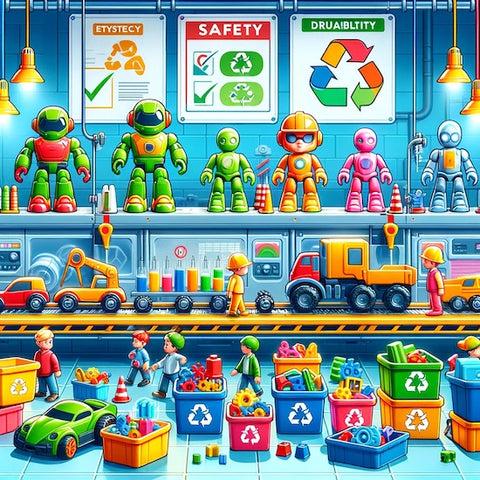The Safety and Durability of ABS Plastic in Toy Manufacturing
Share
Understanding ABS Plastic
Acrylonitrile Butadiene Styrene (ABS) plastic is at the forefront of materials used in the toy industry, celebrated for its versatility, safety, and durability. This material's unique properties make it an ideal choice for creating a wide range of toys that are safe, long-lasting, and environmentally friendly.
Durability and Resistance
The resilience of ABS plastic is one of its most notable characteristics. Its remarkable resistance to physical impacts and high temperatures ensures that toys manufactured from ABS can endure rough handling and various environmental conditions. This durability translates into toys that are safer for children and more economical in the long run, due to their extended lifespan and reduced need for replacement.
The Safety Profile of ABS Plastic
Safety is a paramount concern in toy manufacturing, and ABS plastic's non-toxic nature addresses this issue head-on. ABS does not contain harmful chemicals, making it safe for children, who are particularly vulnerable to toxic substances. Moreover, it does not emit toxic fumes under normal conditions, ensuring that indoor air quality remains safe for children's play areas.
Hygiene and Maintenance
Another advantage of ABS plastic is its ease of cleaning and maintenance. The non-porous surface of ABS toys allows for straightforward disinfection, minimizing the risk of transmitting diseases. Additionally, its resistance to moisture and bacteria is essential in preventing mold and bacterial growth, common issues in moist environments.

